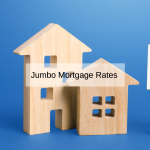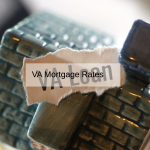When considering a mortgage loans, it's crucial to gather all necessary information to make informed decisions. Asking the right questions can help you understand the terms, conditions, and options available to you. Here are 14 questions to ask a mortgage lender before committing to a loan:
What Types of Mortgages Do You Offer?
Understanding the types of mortgage loans options available can help you choose the one that best fits your financial situation and goals.
Types of Mortgages May Include:
- Conventional loans
- FHA loans
- VA loans
- USDA loans
- Adjustable-rate mortgages (ARMs)
- Fixed-rate mortgages
Different mortgage types suit different financial situations. For example, FHA home loans are often suitable for first-time homebuyers with lower credit scores or smaller down payments. VA loans are exclusive to veterans and active-duty military members, offering favorable terms such as no down payment and competitive interest rates. Conventional loans, on the other hand, are not insured by the government and typically require higher credit scores and down payments but offer more flexibility in terms of loan amount and property type.
Understanding these options can help you make an informed decision about the type of mortgage that best suits your needs and financial goals.
What Are the Current Interest Rates?
Interest rates greatly impact your monthly mortgage payments and overall loan costs. Knowing the current rates and how they fluctuate can help you make informed decisions about when to lock in your rate.
Interest rates are influenced by various factors, including economic conditions, inflation rates, and monetary policy decisions. They can fluctuate daily or even multiple times a day based on market conditions. Therefore, it's essential to stay updated on current interest rates and trends to determine the most favorable time to secure your mortgage.
Your lender can provide you with information about current interest rates and help you understand how they may impact your loan options and monthly payments.
What Is the Annual Percentage Rate (APR)?
The Annual Percentage Rate (APR) reflects the true cost of borrowing, including both the home loan interest rates and any additional fees or charges associated with the loan. Understanding the APR can help you compare loan offers from different lenders.
In addition to the interest rate, the APR includes other costs such as origination fees, points, mortgage insurance premiums, and closing costs. It provides a comprehensive view of the total cost of borrowing over the life of the loan.
Comparing APRs from different lenders can help you evaluate the overall affordability of each loan offer and choose the option that best meets your financial needs.
What Are the Down Payment Requirements?
Different loan programs have varying down payment requirements, ranging from 0% to 20% or more. Knowing the down payment requirements upfront can help you plan and budget accordingly.
The down payment is a lump sum payment made upfront towards the purchase price of the home. It represents your initial equity in the property and affects the amount you need to borrow and your monthly mortgage payments.
For example, conventional loans typically require a down payment of at least 3% to 20% of the home's purchase price, while FHA loans may require as little as 3.5% down. VA loans and USDA loans offer options with no down payment requirement for eligible borrowers.
Understanding the down payment requirements for each loan program can help you determine how much you need to save and plan accordingly for your home purchase.
What Are the Closing Costs?
In addition to the down payment, you'll need to pay closing costs when finalizing the mortgage. These costs may include loan origination fees, appraisal fees, title insurance, and other expenses. Understanding the closing costs can prevent surprises at the closing table.
Closing costs typically range from 2% to 5% of the home's purchase price and cover various services and expenses associated with the mortgage rates va loan transaction. They include fees charged by lenders, appraisers, title companies, attorneys, and government agencies involved in the homebuying process.
Common closing costs include:
- Loan origination fees
- Appraisal fees
- Title search and insurance fees
- Attorney fees
- Recording fees
- Prepaid property taxes and insurance
It's essential to review the Loan Estimate provided by your lender, which outlines the estimated closing costs associated with your mortgage. Understanding these costs upfront can help you budget accordingly and avoid financial surprises at closing.
Are There Any Discount Points or Origination Fees?
Some lenders may offer discount points as a way to lower your interest rate in exchange for an upfront fee. Understanding the terms of discount points and origination fees can help you evaluate whether they are worth paying for your specific financial situation.
Discount points, also known as mortgage points, are prepaid interest that you can purchase upfront to reduce your mortgage interest rate. Each point typically costs 1% of the loan amount and can lower your interest rate by 0.25% to 0.50%.
Origination fees, on the other hand, are fees charged by lenders to process and underwrite your loan application. They may be expressed as a percentage of the loan amount or a flat fee.
When considering discount points or origination fees, it's essential to weigh the upfront cost against the long-term savings from a lower interest rate. Your mortgage loan lenders can provide you with information about the potential benefits of paying discount points and whether they are a good option for your specific financial situation.
What Are the Requirements for Private Mortgage Insurance (PMI)?
If your down payment is less than 20% of the home's purchase price, you may be required to pay for private mortgage insurance (PMI). Understanding the PMI requirements and costs can help you budget for this additional expense.
PMI protects the lender in case you default on your mortgage payments and the property goes into foreclosure. It is typically required for conventional loans with down payments of less than 20%.
PMI costs vary depending on factors such as the loan amount, down payment, and credit score. The cost of PMI is usually calculated as an annual premium, which is divided into monthly payments and added to your mortgage payment.
Understanding the PMI requirements and costs can help you evaluate your financing options and choose the most cost-effective option for your home purchase.
What Is the Loan Estimate?
The Loan Estimate is a standardized form that provides important details about the mortgage loan, including the interest rate, monthly payments, closing costs, and loan terms. Reviewing the Loan Estimate can help you understand the terms of the loan and compare offers from different lenders.
The Loan Estimate is provided by your lender within three business days of submitting your mortgage application. It allows you to review and compare the terms and costs associated with different loan offers before making a decision.
Key components of the Loan Estimate include:
- Loan terms and type
- Interest rate and APR
- Monthly payment breakdown, including principal, interest, taxes, insurance, and PMI (if applicable)
- Closing costs and estimated cash to close
- Loan features such as prepayment penalties or balloon payments
Reviewing the Loan Estimate carefully can help you identify any discrepancies or concerns and ensure that you understand the terms and costs associated with your mortgage loan.
What Is the Estimated Timeframe for Loan Approval and Closing?
Understanding the timeframe for home equity loan approval and closing can help you plan your home purchase timeline and make necessary arrangements. Factors such as documentation requirements, underwriting processes, and appraisal timelines can impact the overall timeline.
The mortgage process typically involves several stages, including loan application, underwriting, appraisal, and closing. The timeframe for each stage can vary depending on factors such as the complexity of your financial situation, the efficiency of the lender's processes, and external factors such as appraisal delays or title issues.
Your lender can provide you with an estimated timeline for loan approval and closing based on your specific circumstances and the lender's processing times.
What Are the Options for Locking in the Interest Rate?
Interest rates can fluctuate daily, so it's important to know your options for locking in the rate. Ask about the length of rate locks, any associated fees, and whether there are any float-down options available.
A rate lock is a commitment from the lender to honor a specific interest rate for a specified period, typically 30 to 60 days. It protects you from potential rate increases during the lock period and allows you to budget for your mortgage payments more accurately.
During the rate lock period, the lender guarantees the specified interest rate, even if market rates increase. However, if market rates decrease, you may have the option to "float down" to a lower rate before closing, depending on the lender's policies.
Understanding your options for rate locks and float-downs can help you navigate interest rate fluctuations and secure the most favorable rate for your mortgage.
What Documentation Is Required for the Loan Application?
Preparing the necessary documentation ahead of time can streamline the loan application process. Ask your lender for a list of required documents, which may include pay stubs, tax returns, bank statements, and proof of assets.
The documentation required for a mortgage application typically includes:
- Proof of income, such as pay stubs, W-2 forms, or tax returns
- Proof of assets, including bank statements, investment account statements, and retirement account statements
- Identification documents, such as a driver's license or passport
- Documentation of debts, such as credit card statements, student loan statements, or auto loan statements
- Employment verification, including employment history and verification of income sources
Having these documents ready before applying for a mortgage can expedite the process and help ensure a smooth caliber home loans application experience.
What Happens if I Miss a Payment?
Understanding the lender's policies and procedures regarding missed payments can help you navigate potential financial difficulties. Ask about late fees, grace periods, and any options for forbearance or loan modification in case of financial hardship.
Missing a mortgage payment can have serious consequences, including late fees, damage to your credit score, and the risk of foreclosure. It's essential to understand the lender's policies and procedures regarding missed payments and explore options for assistance if you encounter financial difficulties.
Many lenders offer grace periods for late payments, typically ranging from 10 to 15 days after the due date. However, late payments beyond the grace period can result in late fees and negative marks on your credit report.
If you anticipate difficulty making your mortgage payments, it's important to contact your lender as soon as possible to discuss potential options for forbearance, loan modification, or other forms of assistance.
Are There Prepayment Penalties?
Some loans may have prepayment penalties if you pay off the loan early or make extra payments towards the principal. Knowing about prepayment penalties upfront can help you avoid unexpected fees down the road.
A prepayment penalty is a fee charged by the lender if you pay off your mortgage loan before the end of the specified term or make significant additional payments towards the principal balance within a certain timeframe.
Prepayment penalties are designed to compensate the lender for lost interest income and may apply if you refinance or sell the property within a specified period, typically one to five years after closing.
Understanding the terms of any prepayment penalties can help you evaluate your options for paying off your mortgage early and avoid unnecessary fees.
What Is the Process for Escrow Accounts?
Many lenders require borrowers to establish escrow accounts to cover property taxes and first time home owners loans insurance. Understanding how escrow accounts work and how they affect your monthly payments can help you budget effectively for homeownership expenses.
An escrow account, also known as an impound account, is a separate account set up by the lender to hold funds for property taxes, homeowners insurance, and other expenses related to homeownership.
Each month, a portion of your mortgage payment is deposited into the escrow account to cover these expenses. When the bills come due, the lender pays them on your behalf from the escrow account.
Escrow accounts provide a convenient way to manage homeownership expenses and ensure that property taxes and insurance premiums are paid on time. They also help protect the lender's interest by ensuring that these expenses are paid, reducing the risk of property liens or loss due to uninsured hazards.
Understanding the process for escrow accounts, including how funds are deposited, how expenses are paid, and how account balances are managed, can help you budget effectively for homeownership expenses and avoid surprises related to property taxes and insurance premiums.
Asking these questions and seeking clarification on any terms or conditions can help you navigate the mortgage process with confidence and make informed decisions about your home financing options.
Frequently Asked Questions (FAQ) - 14 Questions To Ask A Mortgage Lender
Q1: Why is it important to ask about the types of mortgages offered by a lender?
A1: Understanding the types of mortgages available helps borrowers choose the va home loan that best fits their financial situation and goals.
Q2: How do interest rates affect my mortgage payments?
A2: Interest rates directly impact the amount of interest you pay over the life of the loan and your monthly mortgage payments.
Q3: What is the difference between interest rate and APR?
A3: The interest rate is the cost of borrowing money, while the APR reflects the total cost of borrowing, including fees and charges.
Q4: What are the benefits of making a larger down payment?
A4: A larger down payment can reduce your loan amount, lower your monthly payments, and potentially eliminate the need for private mortgage insurance (PMI).
Q5: What expenses are included in closing costs?
A5: Closing costs typically include loan origination fees, appraisal fees, title insurance, attorney fees, and other expenses associated with finalizing the mortgage loan.
Q6: Are discount points worth paying for?
A6: Discount points can lower your interest rate and save you money over time, but it's important to consider how long you plan to stay in the home and whether the upfront cost is worth the long-term savings.
Q7: When is private mortgage insurance (PMI) required?
A7: PMI is typically required when the down payment is less than 20% of the home's purchase price.
Q8: What information is included in the Loan Estimate?
A8: The Loan Estimate provides details about the usda home loan terms, interest rate, monthly payments, closing costs, and other important information related to the mortgage loan.
Q9: How long does the mortgage approval process take?
A9: The timeframe for loan approval varies depending on factors such as documentation requirements, underwriting processes, and appraisal timelines.
Q10: What are the benefits of locking in an interest rate?
A10: Locking in an interest rate protects you from potential rate increases during the lock period and allows you to budget for your mortgage payments more accurately.
Q11: What documents are required for the mortgage application?
A11: Required documents may include pay stubs, tax returns, bank statements, and proof of assets.
Q12: What options are available if I miss a mortgage payment?
A12: Options may include late fees, grace periods, forbearance, or loan modification depending on the lender's policies and your financial circumstances.
Q13: Are there penalties for paying off the mortgage early?
A13: Some loans may have prepayment penalties if you pay off the home loans early or make extra payments towards the principal.
Q14: How do escrow accounts work?
A14: Escrow accounts hold funds for property taxes, homeowners insurance, and other expenses related to homeownership, with the lender paying bills on your behalf when they come due.

















